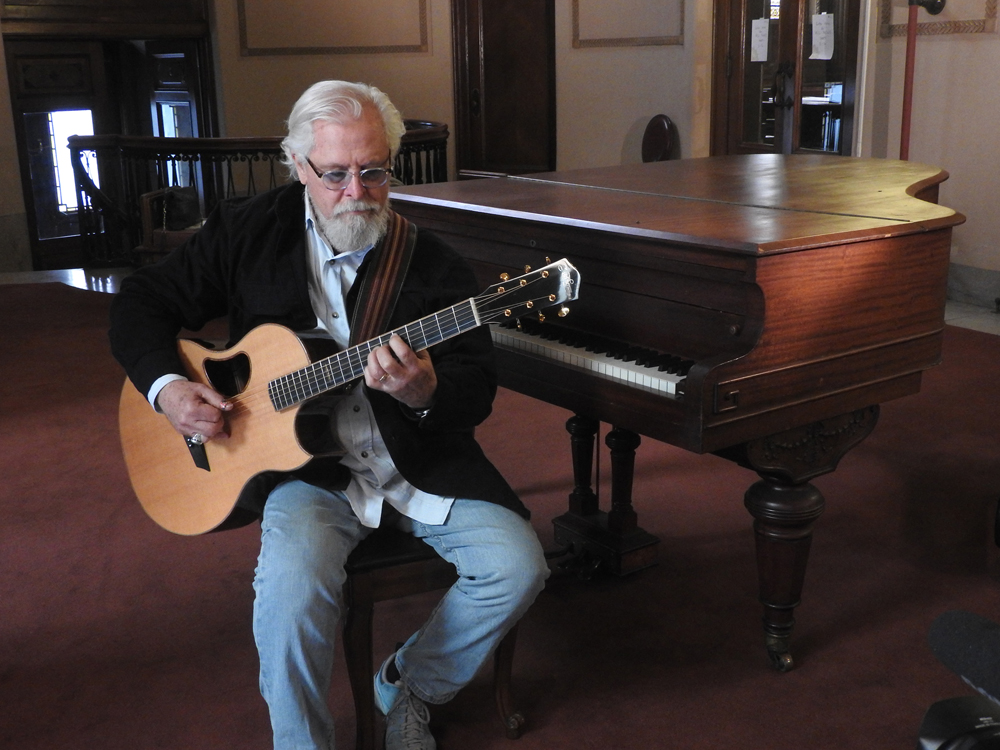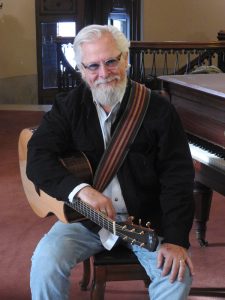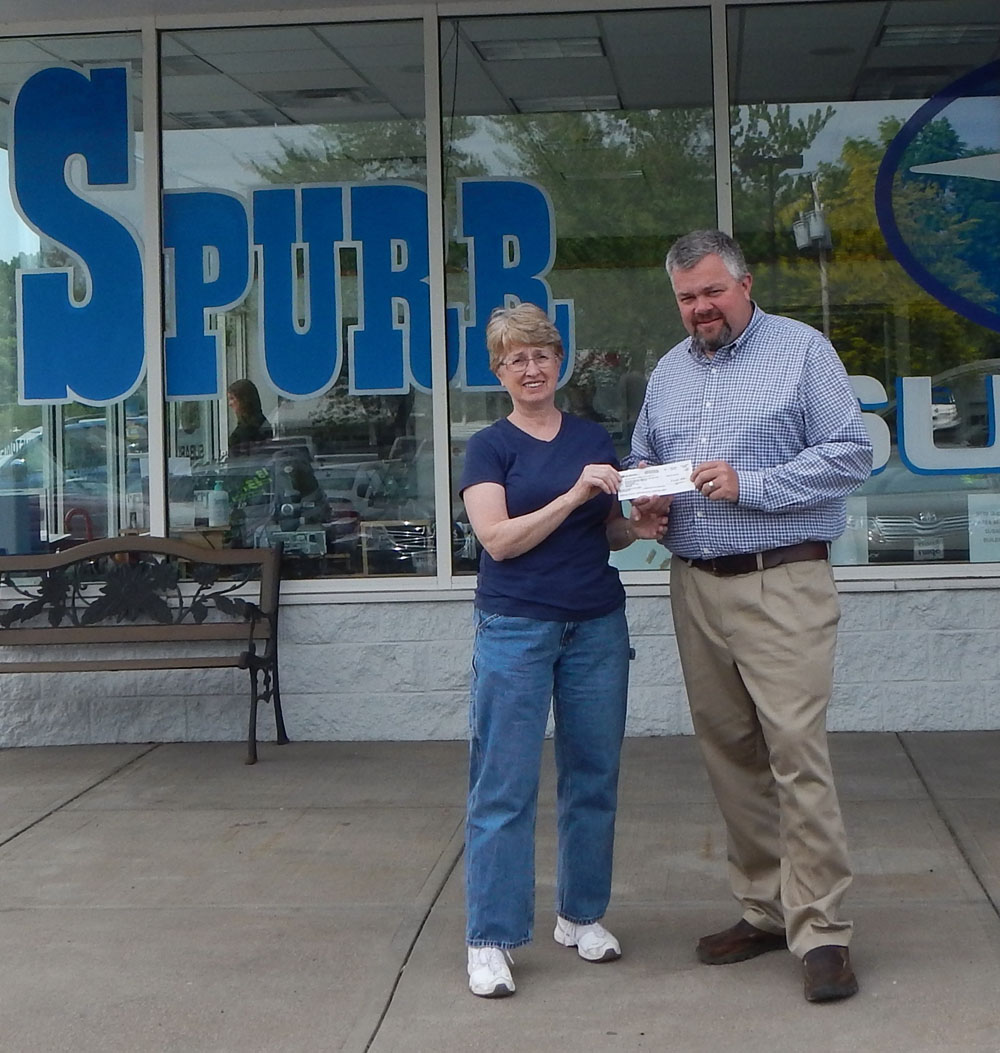Don Potter at The Lyric Theatre

On October 5, 2019, Don Potter returned to Rochester for a sold out show at the historic Lyric Theatre on East Avenue. In the late 60s and early 70s Potter rose to local fame as part of the duo Bat McGrath and Don Potter. Both were members of the band The Showstoppers, worked with Rochester musicians Chuck Mangione and Stanley Watson and opened a Coffee House called Hylie Morris’ Alley on West Ridge Road in Rochester.
Bat McGrath passed away on October 1, 2019 just days before Potter’s concert.
We sat down with Don Potter for a conversation in the lobby of the Lyric Theatre the day before his concert.
On Bat McGrath
Bat McGrath was foremost on Potter’s mind. He immediately started talking about when they met as kids. “We were so young 15 and 16 year olds. We were playing in different bands that weren’t working for us. He asked me if I wanted to join his band. It continued on from there. I immediately learned a lot from working with Bat. I paid attention and listened to how he talked to people, in an audience and in life. Bat was the extrovert and I was an introvert,” Potter said. He talked about Bat as a communicator that lived life to the fullest. Mostly Potter talked about the musical connection that they shared for so many years. Potter and his wife, Christine, visited McGrath just a few weeks before he passed. “He just wanted to think and be all about love, that was his focus,” Potter said. Bat McGrath and Don Potter were inducted into the Rochester Music Hall of Fame in 2013.
On Today’s Music
Don Potter had not yet seen Ken Burns’ film “Country Music” when we spoke, he said everyone was telling him he should see it. Yet in talking about current music, Potter’s thoughts have the same view as the theme that ran through the Burns’ film, putting music into categories is not a good thing. “Music shouldn’t be put into categories and that is exactly what has happened. It limits everything. It is all about the money. Much of the music made today is manufactured, it is put on a loop and repeated over and over to have an effect. Everyone can understand and relate to music in their own way. People don’t get exposure to all types of music and that is a problem,” Potter said. He said there is some good news, “Younger people are reaching for something raw. They are starting to develop their talents earlier and earlier and that is very encouraging.”
In The Studio
According to Potter, recording studios where musicians gathered together to make records are becoming a thing of the past. “Producers are recording tracks by the guitarist and sending that track to the drummer to add their piece on the track, and then to the vocals for their part. It just isn’t live musicians playing off each other in the moment looking for the right combination. There is an aliveness to it when musicians are present. Records are not made, they are felt, and you know when it is a hit. When in the recording studio working things out mistakes happen, and I’ve found the freshest thing you can make comes out right after a mistake, on the other side of a mistake is where the most unique sound on the track can be found. Everything that has to do with success requires sacrifice. I know what it feels like to make a hit record. I know when it is a hit. The key is to listen to what is happening,” Potter said. Potter has added his musical skills to over 100 hit records. He moved to Nashville to work as a session musician because it is something he always wanted to do. He heard that records were still being made there in a studio in a recording session with musicians playing together.
Session Work
Potter’s Nashville session work began in the 80s and was extensive. “You want to be unique as a session player. Getting started is the hardest thing. You are looking for something and to capture it is the first step. I learned the most valuable tool in the studio is to listen. To really listen to the artist and to see where I fit into the music as a guitar player,” he said. Potter’s session work is as diverse as it is extensive. During the 80s and 90s lots of musicians were coming to Nashville to make their records. He was a much in demand session player and sang and played guitar on sessions for Hank Williams, Jr., Clint Black, Trisha Yearwood, Mark O’Connor, Kathy Mattea, Shelby Lynne, Toby Keith, Etta James, Elton John, Willie Nelson, Dolly Parton, Mark Knopfler, Kenny Chesney and many more. One of Potter’s most memorable sessions was with Sting. “Sting was very creative and open to hearing what the musicians were feeling about the music being played,” Potter said. He also talked about working with Lyle Lovett. Before they went into the studio, the producer of the session called Potter aside and told him not to be offended if Lyle fires him the first day. He said that Lyle had a habit of not liking guitar players. Potter said he approached the session by keeping a close eye on Lyle who while recording played guitar and sang at the same time. “I watched him and when he got into the vocals and faded on the guitar I picked up on guitar and when he was into playing guitar I stepped back.” Potter went to the second day of the session and was happy to see he was still employed. He worked two weeks on the album and Lyle never said a word to him. Several weeks after the session he got a phone call from Lyle Lovett. “He went on and on about how he liked what I did and how I sounded on the recording. It was really affirming for me. He called me back again to work on another one of his albums,” Potter said.
The Judds
When Potter first moved to Nashville he was called in to work as a producer with a mother, Naomi and daughter, Wynonna duo The Judds. He recalls visiting their home for the first time to hear them sing. “I was at their kitchen table sitting across from Wynonna. She started to sing and it was so powerful it just blew me away. I knew immediately that this was something special,” Potter said. Potter is credited as the person who created the Judds’ sound. He fashioned beautiful harmonies for the mother daughter duo and his acoustic guitar work on their recordings is a huge part of their signature sound. The success of The Judds opened up the door for other women performers in country music. Potter’s abilities working with the women singers was recognized and he worked with other up and coming women singers including Lorrie Morgan, Faith Hill, Reba McEntire and Alison Krauss, who Potter remains close with today.
About Performing
Potter is always writing new songs and playing guitar. He doesn’t go into a concert with a set list knowing what he is going to play. “It is all about the audience. I have to feel where they are at. People are powerful in who they are. Live music is a different experience for each individual. Each person in the audience is coming from a different space and bringing it all with them. It’s my job to find something that works for them,” he said.
Currently
Don Potter and his wife, Christine, live in North Carolina where they operate Potter School Haus. According to their website www.potterschoolhaus.com, “The original idea is simple; publishing truth-filled content that focuses on practical applications of living our original created design. We are interested in living our authentic selves in truth as we walk out the reality of our salvation. The website also includes Don and Christine’s thoughts, articles and journals.

Don Potter: Anthology
The Lyric Theatre
October 5, 2019
During his 2-1/2 hour performance to a sold out audience, Don Potter took the opportunity to pay tribute to his long time musical partner Bat McGrath who passed away just days earlier. As Anthology suggests, Potter performed songs from his career that showcased his stunning guitar work and soulful voice. He told stories about his years in Rochester with McGrath, Chuck Mangione, and how Stanley Watson influenced his guitar style. He played standards such as “Georgia” and “Lucky Old Sun” and after a moving performance of “Somewhere Over The Rainbow” Potter received an extended standing ovation. His abundant guitar skills were on display when he played all three parts, melody, lead, and rhythm, on his guitar at the same time. He also composed a song on the spot about this visit to Rochester. Potter shared many stories about his experiences in the music business in a career that spans more than 50 years. It was a giving, heartfelt performance and the audience responded in kind with love for the artist.
Don Potter will return, this time with his band, to the Lyric Theatre for two performances in May of 2020.





